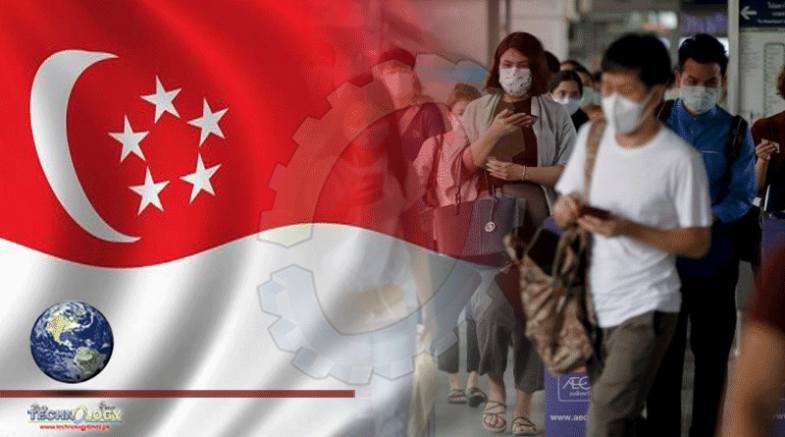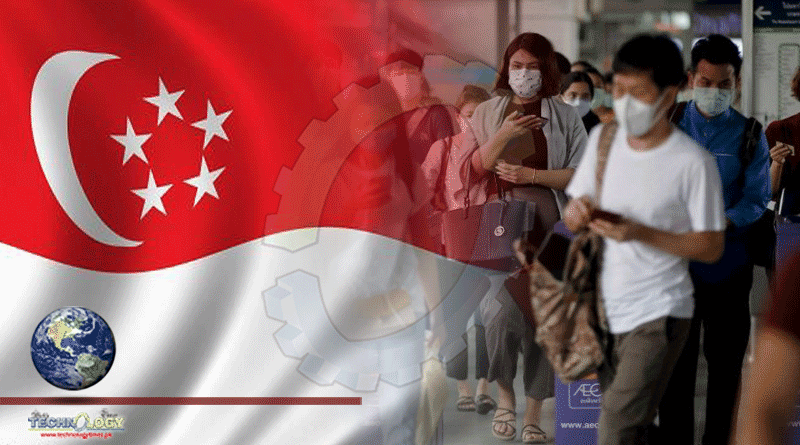The Country Experienced A 14-Point Drop (Which Is Good) In ‘Extreme Pain’ From Negative Online Interactions.

In U.S. tech giant Microsoft’s latest Digital Civility Index (DCI) report, Singapore once again proves it’s a model nation in Southeast Asia, taking fourth place globally for its level of online civility. This also means that Singapore has the most polite online presence regionally, in Southeast Asia. The report, which covers 16,000 respondents in 32 countries, gauges the quality of online interactions people experienced in 2020. Singapore jumped up four spots in the latest study (currently in its fifth annual cycle), taking the number four spot, which was previously held by Malaysia. The study surveyed an even amount of teenagers and adults from each country, with the Netherlands, the UK, and the U.S. taking the top three spots respectively. The report’s scoring system ranges from a scale of zero to 100, with a lower score equating to lower exposure to online risks, thus resulting with a higher level of online civility. At base, countries start at 100 points.
Over in Singapore, the improvement in DCI was largely led by teenagers, contributing -7 points, with adults raking in -1 point. This also resulted with a significant drop in ‘extreme pain’ caused by negative online interactions, amounting to -6 points. 54 percent of Singapore respondents say they either stood up for themselves or paused before replying to someone they disagreed with. However, the top three online risks that Singaporeans faced were hoaxes and scams (+4), hate speech (-2), and discrimination (-1). When it came to cyberbullying, 20 percent of respondents said they were the target of bullying, while 34 percent say they were involved in a bullying incident. All in all, millennials took the hardest hit in this case, 41 percent of them to be precise. Surprisingly (or not), three in 10 Singaporeans say online civility got worse during COVID-19 because of the spread of fake news and misleading information.
How did the rest of Southeast Asia do?
Note: At the time of writing, Microsoft has not produced a study for the Philippines. Clicking on the country’s DCI report actually leads to that of Peru’s. Microsoft, fix it please!
Malaysia adds four points to its online civility, which is worse than before.
Trailing Singapore (59 points), regionally, is Malaysia with a total of 63 points. The country’s score actually worsened by four points in 2020. And guess what, it was mainly adults that contributed to that decrease in online civility (+6). But teenagers didn’t make it any better either, adding two points. Despite this, the country experienced a 14-point drop (which is good) in ‘extreme pain’ from negative online interactions. Addtionally, 64 percent of respondents say they stood up for themselves or treated others with dignity and respect. In terms of COVID-19, nearly four in 10 people said that online civility increased thanks to people coming together and helping those affected by the pandemic.
Thailand is a new addition. But things aren’t looking so great.
After Malaysia comes Thailand with a total of 69 points. The country was only recently added to the study in 2020, so there isn’t much information regarding its past performance. However, what’s alarming is the fact that one-third (35 percent) of respondents experienced ‘unbearable and severe pain’ in 2020. The country’s three biggest online risks were unwanted contact, microaggression, and unwanted sexting. 50 percent of risk sources came from strangers. And unlike Singapore and Malaysia, Thailand’s Gen Z demographic took the hardest hit from cyberbullying in 2020.
What’s more worrying is the fact that nearly four in 10 were involved in a bullying incident, with 12 percent saying they were the target of such instances. Vietnam improves by six points, making it one of the most improved globally. Slashing away the country’s score by six points gives Vietnam a total of 72 points in 2020. This makes it the fourth biggest improvement globally, trailing Peru (-7), Chile (-8), and Colombia (-10). Teenagers contributed the most to this improvement, slashing 11 points off. Adults slashed one point. This also resulted with a 15-point drop in ‘extreme pain’. But like Singapore, the three biggest online risks the country faced in 2020 were hoaxes and scams (+6), hate speech (+8), and discrimination (+4). However, due to a greater sense of community and seeing more people help others, the majority of people thought online civility got better during COVID-19.
Of course, being one of the biggest improvements isn’t necessarily a great thing. Over 50 percent of respondents said they were involved in a bullying incident, with 20 percent saying they were a target. The biggest victims: Millennials. Coming in at last place regionally is Indonesia, worsening by eight points to 76. Oddly, teens made no contribution (positive or negative) to Indonesia’s 2020 score. The country’s DCI deterioration was driven wholly by adults, adding 16 points. Despite this, there was still a significant drop in ‘extreme pain’, down by 15 points. The three biggest online risks were hoaxes and scams (+13), hate speech (+5), and discrimination (-2), which is a pattern that can be seen in the region. Four in 10 people said online civility was better during COVID-19, thanks to a greater sense of community and witnessing people help others. But nearly five in 10 people were involved in a bullying incident, with 19 percent of respondents saying they were targeted. And once again, millennials were the hardest hit.
This news was originally published at Mashable
